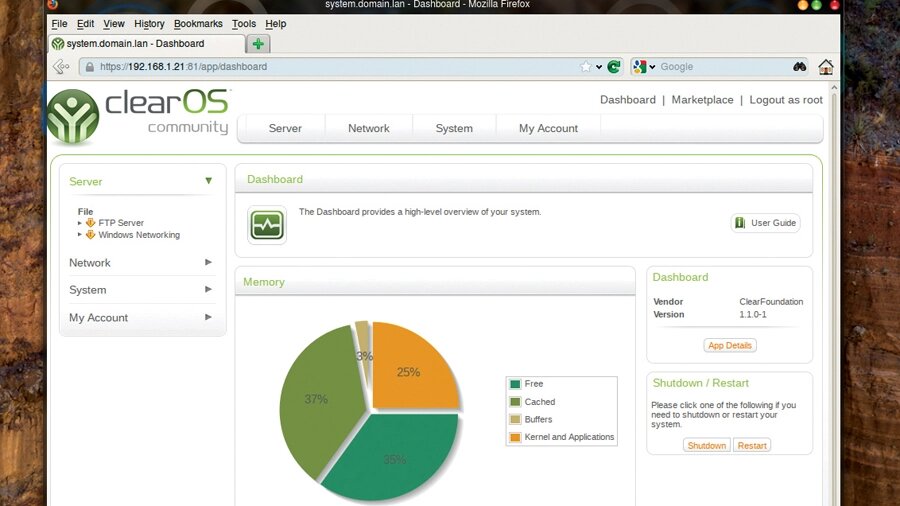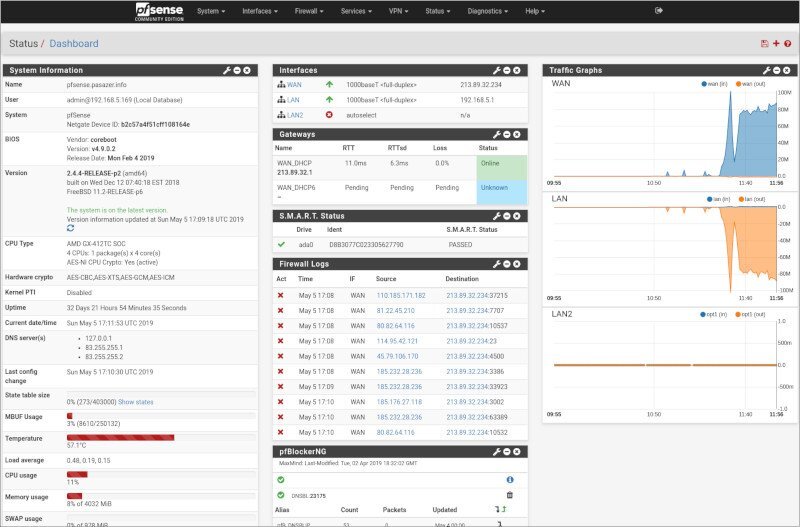Yes, router software can be Linux-based. Linux offers flexibility, security, and customization options that make it a great choice for powering routers. Popular Linux-based firmware like DD-WRT and OpenWrt are widely used for enhancing router functionality.
In this article, we will delve into the nuances of Linux-based router software, exploring its advantages, potential drawbacks, and how it compares to traditional proprietary systems.
Introduction To Software Be Linux-Based
In the rapidly evolving world of networking technology, routers play a pivotal role in managing and directing network traffic. Traditionally, router firmware has been proprietary, developed by hardware manufacturers. However, a growing trend is the use of Linux-based software in routers. This shift offers both flexibility and enhanced control, but it also brings certain challenges and considerations.
Understanding Router Software:

Before diving into the specifics of Linux-based router software, it’s essential to understand what router software does. Router software, also known as firmware, is the embedded program that manages the router’s operations. It handles tasks such as routing data packets, managing network traffic, providing security features, and offering user interfaces for configuration.
The Rise of Linux in Networking:
Linux has long been a popular choice for server and desktop operating systems due to its stability, security, and open-source nature. Its application in networking and routing has been growing, driven by the need for more customizable and cost-effective solutions. Linux-based router software can offer significant benefits, especially for those who need advanced networking features or prefer open-source solutions.
Advantages of Linux-Based Router Software:
1. Customizability
One of the most significant advantages of Linux-based router software is its customizability. Unlike proprietary firmware, which is often limited to the features provided by the manufacturer, Linux-based systems can be tailored to meet specific needs. Users can modify the code, add new functionalities, and optimize the software for their unique requirements.
2. Open Source Community Support
Linux-based router software benefits from robust support from the open-source community. Projects like DD-WRT, OpenWRT, and Tomato offer extensive documentation, forums, and community-driven improvements. This support can be invaluable for troubleshooting issues and finding innovative solutions.
3. Enhanced Security

Linux is known for its strong security features. Linux-based router software often incorporates advanced security protocols and allows for more detailed configuration of firewall rules, VPNs, and other security measures. This can lead to improved network security compared to some proprietary systems.
4. Cost Efficiency
Linux-based router software is typically free or low-cost, which can be a significant advantage for individuals and organizations looking to minimize expenses. The open-source nature of Linux reduces the need for expensive licensing fees and allows users to access high-quality software without a substantial financial investment.
Potential Drawbacks of Linux-Based Router Software:
- Complexity: While Linux-based router software offers many benefits, it can also be complex to set up and configure. Users need a certain level of technical expertise to make the most of its features. Unlike user-friendly proprietary firmware, Linux-based solutions often require more manual configuration and troubleshooting.
- Hardware Compatibility: Not all router hardware is compatible with Linux-based software. Users need to ensure that their router supports the specific Linux distribution they plan to install. This can limit the options available and may require additional research or hardware modifications.
- Support and Updates: While the open-source community provides support, it may not always be as immediate or reliable as the support provided by commercial vendors. Additionally, updates and patches may depend on community contributions rather than official releases, which can sometimes lead to delays or inconsistencies.
Comparing Linux-Based and Proprietary Router Software:
When choosing between Linux-based and proprietary router software, it’s essential to weigh their respective strengths and weaknesses. Each approach has its merits, and the best choice depends on the user’s needs and technical capabilities.
1. Feature Set and Flexibility
Proprietary router firmware often comes with a well-defined feature set tailored to the specific hardware. These features are generally user-friendly and designed to work seamlessly with the hardware, providing a straightforward setup experience. However, this can also mean limited flexibility.
In contrast, Linux-based router software offers a high degree of flexibility. Users can add custom features, modify existing ones, and integrate additional tools to suit specific requirements. This flexibility is ideal for advanced users who need tailored solutions but may be overwhelming for those seeking a more straightforward setup.
2. User Experience and Interface
Proprietary firmware usually provides a polished user interface with intuitive navigation, making it accessible for most users. Manufacturers design these interfaces to be user-friendly and to simplify configuration and management.

Linux-based systems, while powerful, often require a more hands-on approach. The interfaces can vary significantly depending on the distribution, and users might need to interact with command-line tools or configuration files. This can be a barrier for those not comfortable with more technical interfaces.
3. Performance and Stability
Both Linux-based and proprietary router software can deliver excellent performance and stability. Proprietary firmware is optimized for specific hardware, ensuring reliable operation and consistent performance.
Linux-based software, however, can be customized to maximize performance. Users can tweak settings and configurations to optimize for their specific use cases, potentially achieving better performance than with stock firmware. However, this requires a good understanding of the software and hardware interaction.
4. Security
Security is a crucial consideration for any router. Proprietary firmware often includes standard security features and regular updates from the manufacturer. However, the security of proprietary systems can be limited by the manufacturer’s priorities and update frequency.
Linux-based router software benefits from the open-source community’s vigilance. Security vulnerabilities are often addressed quickly, and users can implement custom security measures tailored to their needs. This proactive approach to security can be a significant advantage for users who require robust protection.
5. Support and Documentation
Proprietary router software typically comes with dedicated customer support and extensive documentation. This can be beneficial for users who need assistance with setup or troubleshooting and prefer professional support.
Linux-based router software relies on community support and documentation. While the open-source community provides valuable resources and assistance, it may not always match the availability and reliability of commercial support. Users should be prepared to engage with forums and community groups for help.
Popular Linux-Based Router Software:
Several Linux-based router software solutions have gained popularity due to their flexibility, features, and community support. Here are some notable examples:
1. DD-WRT
DD-WRT is a well-known open-source firmware for wireless routers and access points. It offers a broad range of features, including advanced routing, VPN support, and enhanced security. DD-WRT supports various router models and is popular for its extensive customization options.
2. OpenWRT

OpenWRT is a highly customizable Linux-based firmware for routers. It provides a robust package management system, allowing users to install and configure additional software packages. OpenWRT is known for its flexibility, stability, and security features.
3. Tomato
Tomato is another popular firmware for routers, known for its user-friendly interface and efficient performance. It provides features such as bandwidth monitoring, QoS (Quality of Service), and VPN support. Tomato is appreciated for its simplicity and ease of use.
How to Choose the Right Router Software?
Selecting the right router software depends on various factors, including technical expertise, hardware compatibility, and specific requirements. Here are some tips to help make the decision:
- Assess Your Needs: Determine what features and capabilities you need from your router. Consider factors such as security, performance, and customization options.
- Evaluate Technical Skills: If you’re comfortable with advanced configurations and troubleshooting, Linux-based software might be a good fit. For a more straightforward setup, proprietary firmware may be preferable.
- Check Hardware Compatibility: Ensure that the router hardware supports the software you intend to use. Compatibility is crucial for achieving optimal performance and stability.
- Consider Support Options: Evaluate the level of support available for each software option. Community support can be valuable, but professional support may be necessary for some users.
- Review Documentation: Access and review documentation and resources available for the software. Comprehensive guides and forums can be helpful for setting up and managing your router.
FAQ’s
1. What is Linux-based router software?
Linux-based router software is firmware that runs on a router, based on the Linux operating system. It offers advanced customization and flexibility compared to proprietary firmware.
2. Does using Linux-based router software void the router’s warranty?
Using Linux-based software may void the warranty of some routers. Users should check the warranty terms before installing custom firmware.
3. Can all routers run Linux-based software?
Not all routers are compatible with Linux-based software. Users must ensure that their router model supports the specific Linux distribution they plan to use. Compatibility can vary by manufacturer and model.
4. Is Linux-based router software difficult to set up?
Linux-based router software can be more complex to set up compared to proprietary firmware. It often requires manual configuration and a certain level of technical expertise. However, many distributions offer guides and community support to assist with the setup process.
5. What are some popular Linux-based router software options?
Popular options include DD-WRT, OpenWRT, and Tomato. Each offers unique features and customization options, catering to different user needs.
Closing Remarks:
The choice between Linux-based and proprietary router software ultimately depends on individual needs and technical capabilities. Linux-based solutions offer unmatched flexibility and customization, making them ideal for advanced users and those seeking tailored solutions.
Proprietary firmware, on the other hand, provides a user-friendly experience with dedicated support, suitable for users who prefer a more straightforward setup.

